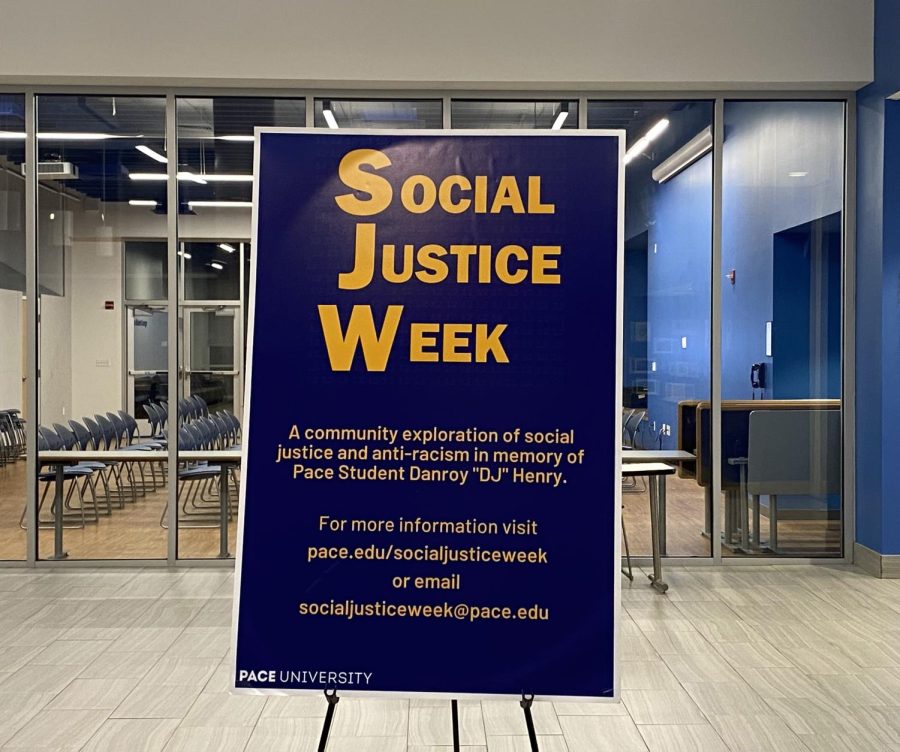Faculty and students discuss Anti Racism Education during Social Justice Week
Pace held its third annual Social Justice Week from October 24th to October 29th. The event takes place the week of Danroy (DJ) Henry’s birthday, a student who was killed unjustly by police in 2010.
On both the Pleasantville and New York City campuses, there were events all week ranging from education about intersectional topics such as racial injustice, environmental issues, and even self-defense. There were fundraisers, lectures, discussions, and giveaways held all week to raise awareness about different social justice causes.
On Friday the 28th, the NYC Campus held a discussion between students and faculty about Pace University’s new ARE courses. ARE stands for Anti-Racism Education, it is an attribute that faculty can add to any course to teach about race and discriminatory issues within topics and fields of work. It became a requirement this year for incoming freshmen to take two ARE-attributed courses before graduation after the attribute was passed last year.
The event was titled ‘Social Justice Week BSU to ARE,’ named for the BSU’s (Black Student Union’s,) contributions towards the achievement of ARE courses as well as other social justice issues related to education at Pace. The event was hosted by Meghana Nayak and Laura Kaplan, faculty of Pace in NYC, as well as the Black Student Union.
The creation of the ARE attribute was progressive for a university and a definite step in the right direction. Pace is the only university with 2 ARE course requirements and the attribute was gained within a year of proposal, showing a desire to take action within the university.
Following these changes, BSU Hopes to revise AOK II Requirements, and increase and revise ethnic studies classes. BSU demands for more POC professors as well.
On June 2nd, 2020, BSU made specific demands to the university. They asked for all students to take two courses in Critical Race Theory, UNV 101 to have 6 hours of antiracism training, and faculty and staff to have 3-day antiracism training.
A few questions were raised between faculty and students to spark conversation such as what can educators do with the curriculum for this, How do we support potential and activists and change makers at Pace, and what are professors or students afraid of or concerned about in ARE classrooms.
Emilio Fernandez, a professor teaching a Latino Latina Studies course this spring on the Pleasantville Campus, says he asks for transparency between students and faculty and would like students to communicate with faculty their wishes surrounding the topic.
New professor Brandyn Heppard says his hiring is in some ways a result of the new requirements for more diverse ethnic studies for ethnic studies as well as the demand for more POC professors. In the spring, he will be teaching Latin American philosophy and other ethnic studies courses on the New York City campus.
Students emphasized that information about ARE should be shared with all students and should be on Pace’s website.
Toward the end of the discussion, there was talk about how to educate incoming students about DJ Henry’s story. Meghana Nayak brought up incorporation of this in UNV 101 classes; a student advised that educating students even during orientation would be good.
In the coming months, look for improvements and adjustments to Pace’s curriculum and education.
Your donation supports independent, student-run journalism at Pace University. Support the Pace Chronicle to help cover publishing costs.


